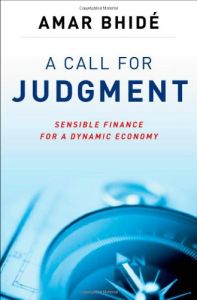
Read or listen offline
Recommendation
Decentralized decision making is essential to capitalism. Entrepreneurial inspiration and innovation can advance society faster than the slow march of a centralized, government-planned economy. But like government bureaucracies that become unmanageably large, oversized banks also can impede progress. Simply allowing market forces to determine the size and scope of the big banks is debatable public policy, but bank mergers have led to centralization and to the mechanization of lending, thus adding systemic risk to the US banking system. This far-reaching book includes a rich history of this industry’s development and a detailed account of its destabilizing role in the 2008 financial panic. Amar Bhidé – a business professor and a trader –describes more than he prescribes, and his prescription is as controversial as it is compact: Limit severely what banks can do. getAbstract recommends the book to readers seeking a deeper understanding of how financial institutions drive, and sometimes derail, the entire economy.
Take-Aways
About the Author
Amar Bhidé has served as a professor of business at Columbia University, a consultant at McKinsey & Company and a proprietary trader at investment firm E.F. Hutton.















Comment on this summary or Start Discussion